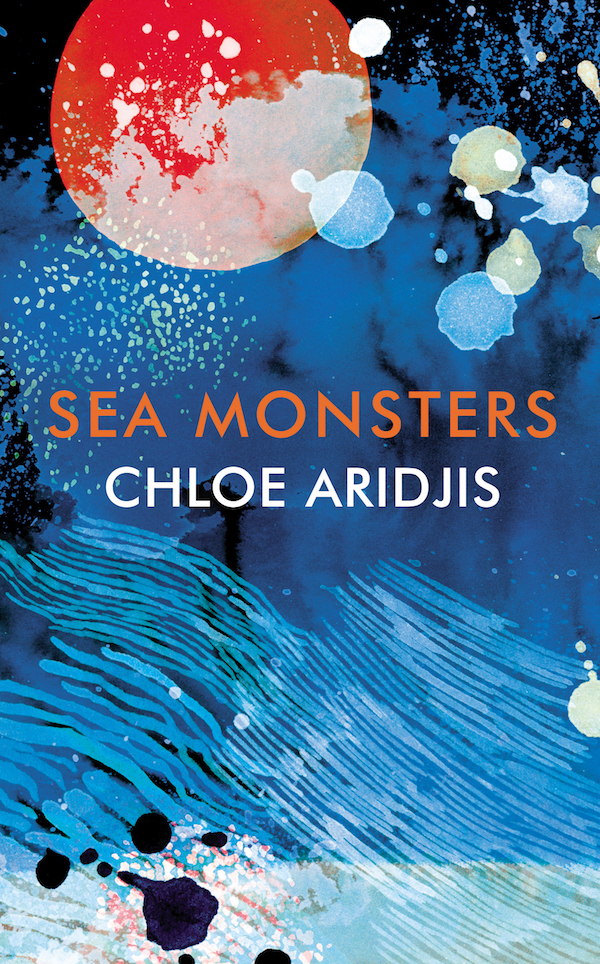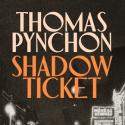We've all been there. The disappointing fling. The gently shattered illusions. The abortive holiday eliding languor and boredom. Teenage ennui. Revels peopled by runaways. Talking animals. Talking animals? Well, fine. Not quite.
Sea Monsters is Chloe Aridjis’s third novel. It is the story of seventeen year old Luisa’s escape to the Oaxaca coast. She’s a clever girl with foreign university on the horizon and a vague sense that there’s more to life than the cycle of exams and gay goth nightclubs that characterise her existence in Mexico City.
With the object of her romantic affections — mysterious nineteen year old Tomás — in tow, she packs minimal possessions and elopes by bus to the beach town of Zipolite, ostensibly in search of a troupe of Ukrainian dwarfs escaped from the travelling Soviet circus. But the journey is not the panacea she anticipates. Like the batteries of her walkman, the energy soon drains from the incipient romance; she dwells on “the songs I didn’t have rather than the ones I’d brought” and finds herself idling away days on the beach and evenings at the bar, just as directionless by the ocean as in the city.
And what of the animals? Well, Luisa is in thrall to whimsey and keen to assert her independence — she’s lost in a quintessentially teenage way. This isn’t really a problem — she’s seventeen, after all — but a combination of dreaminess, mild anxiety about the future and a literary kind of romantic self-absorption combine to make her rather irresponsible and more than a little distanced from what might be termed “reality”. Again, at the mild end this isn’t really a problem — lying to your parents to watch the luchas in the badlands of the city is a rite of passage — but when she skips town without telling her parents, it becomes one.
 At some level, Luisa remains aware of all the things she’s suppressing because her unconscious works overtime to regurgitate them into the world. When Tomás challenges her to a race and careens off in the opposite direction to her, she’s rankled and more than a little hurt. She jokes about his “rusty inner compass,” apparently unaware she could be describing herself. But primarily her feelings find expression through the animals she encounters. It’s not that they speak, exactly, but rather what they signify. They are her own personal bestiary telling her things she won’t admit to herself. A road along which she and Tomás walk is covered with sad dead frogs flattened by speeding traffic. A trio of vexed iguanas at a house party remind her to return home when they fall asleep. In an effort to anticipate the effect the pill she’s just taken she recalls studies of webs made by spiders fed caffeine, alcohol, LSD and diazepam. The time is “a quarter past crow, half past seagull, five to owl”. Animals sign and tell and stand in for the people and realities she can’t quite grasp — including herself.
At some level, Luisa remains aware of all the things she’s suppressing because her unconscious works overtime to regurgitate them into the world. When Tomás challenges her to a race and careens off in the opposite direction to her, she’s rankled and more than a little hurt. She jokes about his “rusty inner compass,” apparently unaware she could be describing herself. But primarily her feelings find expression through the animals she encounters. It’s not that they speak, exactly, but rather what they signify. They are her own personal bestiary telling her things she won’t admit to herself. A road along which she and Tomás walk is covered with sad dead frogs flattened by speeding traffic. A trio of vexed iguanas at a house party remind her to return home when they fall asleep. In an effort to anticipate the effect the pill she’s just taken she recalls studies of webs made by spiders fed caffeine, alcohol, LSD and diazepam. The time is “a quarter past crow, half past seagull, five to owl”. Animals sign and tell and stand in for the people and realities she can’t quite grasp — including herself.
Of course, it’s a particularly teenage trait to see the world reflected in your own image. At the moment the bus departs Luisa describes how she “felt indomitable, poised to leap out of myself and into another,” but on the brink of transformative change, is it not natural to be so self-involved? And don’t these subjectively-felt moments carry their own important weight? The problem is the cost it exacts. Growing up involves departure — which can be gracious, rebellious, natural, painful — and over the course of the book this slowly comes home.
The sounds of growing up in Mexico City in the 80s weave through the book. The writing smells of hormones, and angst and sweet becoming. It's charming. Themes and references are over-egged but sit fine because they are told by our narrator, the ever-precocious Luisa. Clichés and unnecessarily elaborate writing (“strong hands”, “the buffer, the ballast, was stripped from my senses”) can be forgiven because the book is written in the first person, and anyway are countered by some lovely insights and phrases (“by not paying, one owes more,” “how convenient to go through life with silk as your currency,” an aquarium that’s “a slice of sea” in her father’s study.) There’s no real precarity, because we’re not in her parents’ shoes. Instead, like Luisa, we’re in for the threshold, “that suspended state” between departure and voyage, journey and return.
- Sea Monsters by Chloe Aridjis (Chatto & Windus, £12.99 hardback)
- read more book reviews on theartsdesk















Add comment